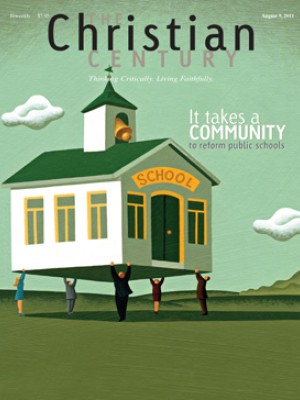A time to spend

"In these tough times, Americans are tightening their belts—and their government needs to do the same." Versions of this line have enjoyed bipartisan popularity lately. President Obama, House Speaker John Boehner and other leaders from both parties share the talking point. It's a good applause line: it's pithy, full of populist empathy, easy to understand. It's also exactly wrong.
While partisan gridlock over raising the debt ceiling has taken the nation to the brink of disaster, the differences between Democrats and Republicans on the issue are largely political, not substantive. The consensus view is that the budget deficit is the country's most pressing economic problem and that cuts to government spending are the primary solution. The policy questions on the table boil down to just this: how drastically should government spending be cut—and should the deficit also be reduced further by a modest package of tax increases?
Read our latest issue or browse back issues.
Meanwhile, almost a tenth of Americans are unemployed. Cuts to essential services will hurt these people while they're down, and deficit reduction of whatever kind will do little to get them working and the economy rolling again. That turnaround requires more of the things that antideficit zeal has pushed off the table: federal support for states, investments in bridges and roads and train tracks, targeted relief for lower-income taxpayers.
In short, to revive jobs and the economy, the federal government needs to do the opposite of what families should do in hard times: spend more money.
It's true that doing this would increase the deficit, and it's true that budget deficits ultimately need to be faced. But the deficit problem is far less urgent than most elected officials are letting on. In this weak economy with high unemployment, the deficit is a long-term problem, not a short-term one. The immediate issue is unemployment—a problem that calls for spending, not austerity. Along with improving people's lives, more jobs mean a more robust economy—which will ultimately do more to reduce the deficit than anything else will.
President Obama has made some attempts to package short-term stimulus and long-term cuts together, but he's been foiled by the Republicans' sole focus on cutting government spending. Now the conservative narrative—that government should always be shrinking, even and especially in hard times—is ruling the day.
This is partly due to congressional Republicans' skillful maneuvering. But it's also because economics is a complex and counterintuitive subject: the best answers often don't seem right to voters. "We're all tightening our belts" is an unhelpful and misleading idea, but it sounds great in a speech. "The government has to step in to help reduce unemployment and revive the economy" has the advantage of being correct, but it's a far less concrete and accessible point. That's a pity for the jobless, whose crises and anxieties are anything but abstract.






